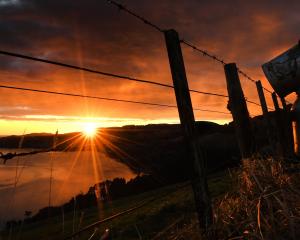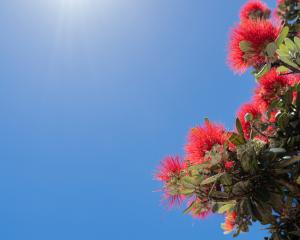Imagine walking through a native New Zealand forest and only hearing the sound of your own footsteps.
Or strolling through a local town infested with rubbish and the foul stench of smoke.
How much time is there before trees become endangered?
New Zealanders need to care about conservation.
The numbers of native birds are dropping, the amount of pollution is increasing, and the rest of the world is changing their opinion towards the ''clean and green'' environment of New Zealand.
The New Zealand forests were once the habitat of many native birds - the kakapo is a very large flightless, nocturnal bird, also known as the night owl.
The large bird once roamed forests, and is historically important to the Maori people.
In 2013 the numbers have dramatically decreased to only 126 individuals remaining on three coastal islands.
The rowi kiwi is the most significant bird to New Zealand, a true symbol of our identity. Although, sadly, only 300 rowi kiwi remain.
Both of these native birds are more than critically endangered due to cats, dogs and pests such as ferrets.
The two beautiful species of birds are at a huge risk.
In about 30 years, without funded breeding grounds or living areas, extinction is the only option left.
Is it really worth the cost of extinction?If New Zealanders cared for conservation, the rowi kiwi, kakapo and more native birds would never have been trapped in the situation they are in.
People need to become more observant of the significance and status of our endangered species.
In society today, why is there an increase of rubbish in the streets? Why is there still pollution in the air and water?Research has shown that littering has become more of a problem and cleanup efforts are less frequent.
Rubbish placed in wrong areas, such as the sidewalk, is far worse of a problem than it used to be as it seems most plastics are non-biodegradable, requiring many years to disappear.
This is also a danger towards animals such as cats or dogs swallowing plastic food wrappers.
The amount of pollution in the air and water is also increasing at a constant rate.
From 1990-2013, greenhouse gases increased by 22.1%, mainly due to house fires, and there have been over 800 cases of polluted water requiring decontamination due to farming animals such as cows or sheep affecting wildlife.
This is a real danger to the environment.
With the increase of greenhouse gases in the atmosphere the temperature is increasing.
With more recent incidents of water pollution, animals are more prone to disease.
New Zealanders should care for conservation by using alternative environment friendly methods such as a heat pump, and should always recycle/dispose of rubbish.
Is it now time to explore new ways of environmentally friendly farming?How much longer will the environment last?So what about the rest of the world's involvement and opinion of New Zealand?
If more people start to label New Zealand as a polluted country, tourism will begin to decrease, followed by the country's economy.
New Zealand is a country which generates a large income from its tourist industry.
New Zealanders truly need to start caring more for conservation, for the sake of their own reputation. It is time to reconsider ways of living daily life to benefit the image of New Zealand.
It is now time for a change.
• By Ryan Livesy, Year 11, Taieri College













